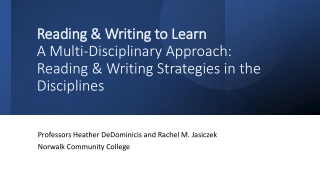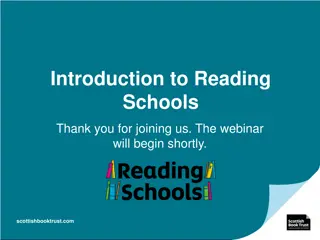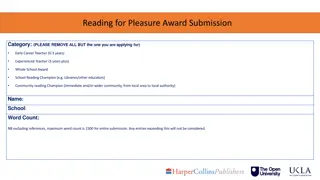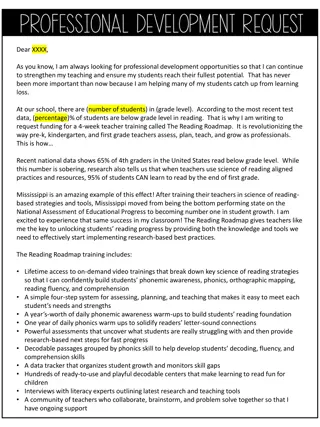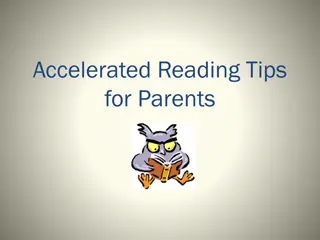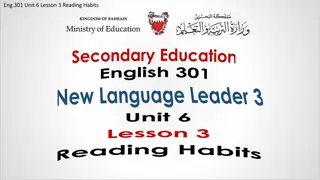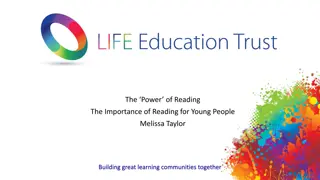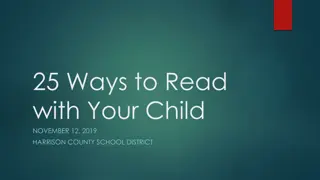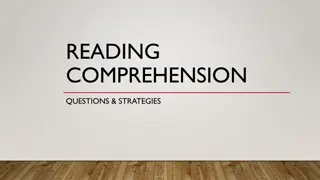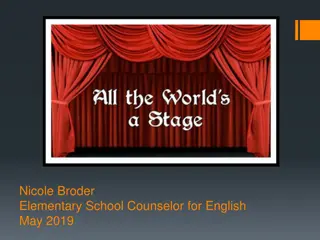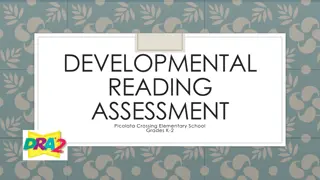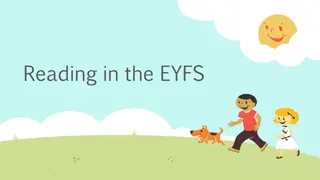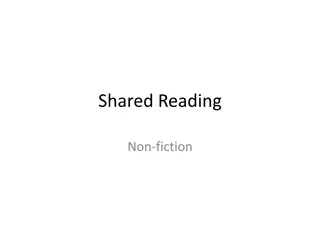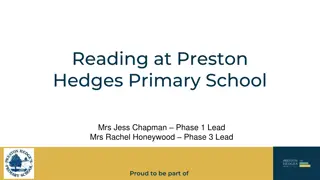
The Effects of Evaluations and Love Hormones on Children and Adults
Explore the impact of different types of evaluations on children's behavior and mindset, as well as the role of love hormones like dopamine and oxytocin in shaping relationships. Discover how praise and effort influence outcomes, and how love hormones can affect perceptions in relationships over time. Witness personal stories that highlight the power of positive influences in supporting individuals to pursue their passions and interests.
Uploaded on | 1 Views
Download Presentation

Please find below an Image/Link to download the presentation.
The content on the website is provided AS IS for your information and personal use only. It may not be sold, licensed, or shared on other websites without obtaining consent from the author. If you encounter any issues during the download, it is possible that the publisher has removed the file from their server.
You are allowed to download the files provided on this website for personal or commercial use, subject to the condition that they are used lawfully. All files are the property of their respective owners.
The content on the website is provided AS IS for your information and personal use only. It may not be sold, licensed, or shared on other websites without obtaining consent from the author.
E N D
Presentation Transcript
13 !_1 / p.48 Reader s Bank Level 8 According to the social psychologist Carol Dweck, there are two kinds of evaluations. First, there are comments that are aimed at evaluating a person s abilities. (ex. You are a clever girl. ) Second, there are comments that focus on a person s efforts. (ex. You tried hard. ) Although these two kinds of evaluations seem similar, the effects they have on children are quite different. When children are evaluated for their efforts, they learn to attribute their failures to the lack of effort. Therefore, these children will work harder to develop skills in order not to fail again. In contrast, children evaluated for their abilities attribute their failures to the lack of ability they are born with. So they tend to give up faster when facing failure.
13 !_2 / p.48 Reader s Bank Level 8 The bottom line is that the effectiveness of praise has to do with whether or not it s something the children can control. Effort is within their control; ability isn t. Therefore, if you want to give effective evaluation, focus on things that the children can actually ___________.
14 : _1 / p.50 Reader s Bank Level 8 When we fall in love, we become blind. We are unable to see the bad side of our partner and only see their good side. What could be the reason for this? It s all due to the love hormone, dopamine. Our brains produce dopamine when we fall in love. This hormone makes us blind to everything negative about the person we love. ( ) As time goes by, the level of dopamine continues to go down. About 900 days after we fall in love, our brains release less and less dopamine for that particular person. ( ) Although dopamine production drastically slows down, another love hormone, oxytocin, takes over to make up for the absence of dopamine. ( )
14 : _2 / p.50 Reader s Bank Level 8 Oxytocin is also a kind of love hormone, but it s different from dopamine. ( ) While dopamine is present in the early stages of romance to create attraction, oxytocin helps increase emotional bonds between people after they fall in love. ( ) Thus, oxytocin strengthens a couple s relationship. The feeling of family is developed and maintained with the aid of oxytocin. But the blindness does not last very long.
15 _1 / p.52 Reader s Bank Level 8 Charles was a reserved boy. He didn t hang out with other children. He was not interested in his studies. The only things that interested him were plants and animals. So he spent most of his childhood alone in the field. Charles went to theology school to become a church minister. But he didn t like his classes. He was still only interested in biology. At theology school, however, Charles met a teacher who changed his life. This teacher was Professor Handlers, who taught botany. Handlers recognized Charles and helped him pursue what he really loved. ,
15 _2 / p.52 Reader s Bank Level 8 One day, a letter came to Charles from the navy. The letter suggested that he join the navy s research team as a naturalist on a trip to a remote land. Later, Charles found out that Handlers had recommended him. The research team boarded a ship named the Beagle and started a long journey to the West Indies. During his five years there, Charles observed countless plants and animals of many different varieties. While observing them, he started to develop the idea that all creatures evolve little by little depending on their environment. Back then, nobody paid attention to him. Why? Little did they know that his idea would change the world. For he was Charles Darwin, and he wrote The Origin of Species based on this journey.

